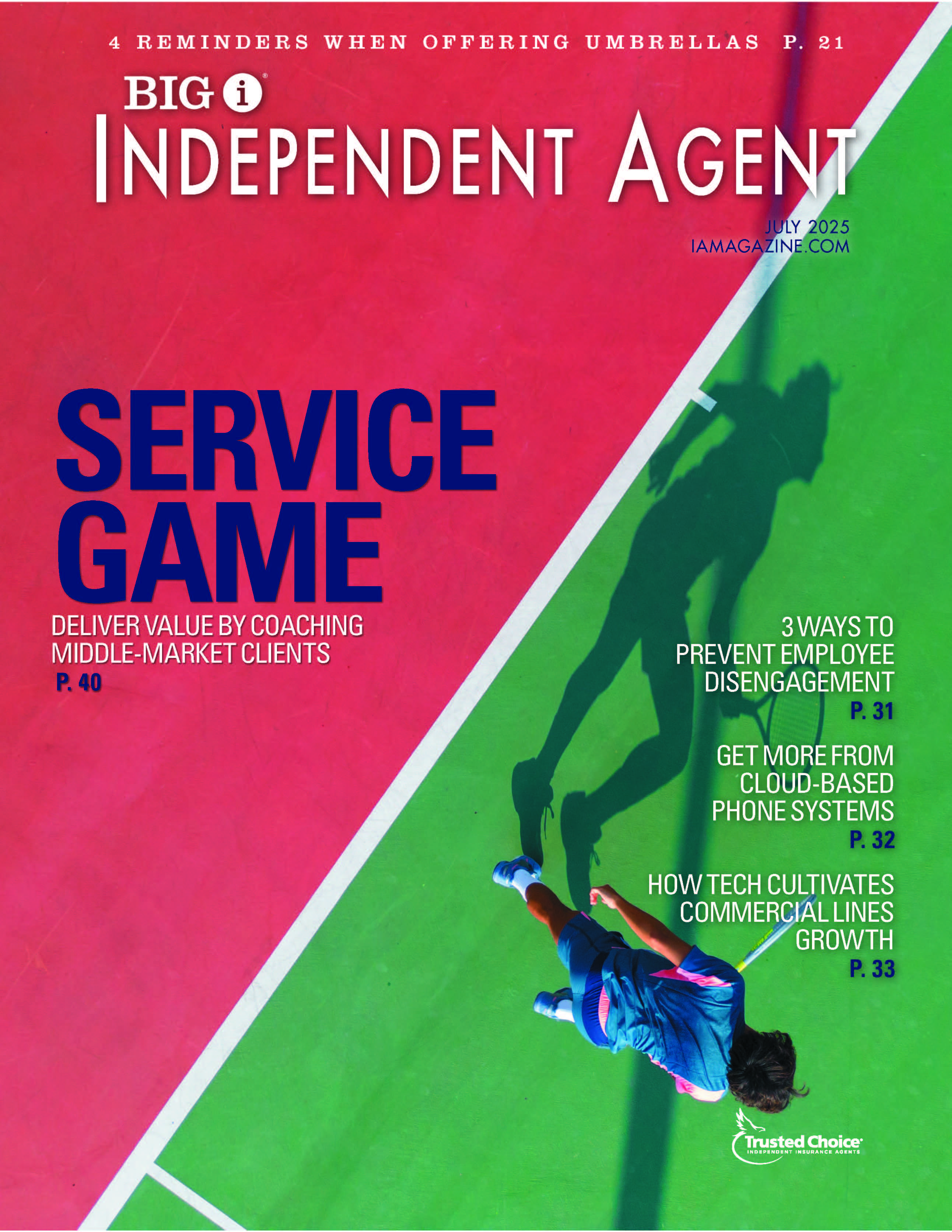Surety Bonds: Are Independent Agents Leaving Money on the Table?

By: Olivia Overman
The insurance and surety markets both provide for an assumption of risk and protection in exchange for payment. And while they both provide a risk transfer mechanism, surety bonds are defined as “providing financial protection to businesses, families, and consumers by guaranteeing contractual obligations are met through the securement of a bond,” according to the Surety and Fidelity Association of America.
However, while “most agents have some familiarity with bid bonds, performance and payment bonds, and license and permit bonds, unfortunately, there are many types of bonds that people are not aware of,” says Jack Anderson, president, Goldleaf Surety Services LLC.
Each type of bond can be tailored to the specific needs of either the issuer or investors, creating an opportunity for agents to offer more protection to their clients.
According to Anderson, here are five types of bonds that agents can write but many don’t, which means agents are leaving money on the table:
1) Supply bonds. Guarantees that the material equipment ordered by the owner will be delivered within the time specified and meets the requirements of the purchase order.
2) Financial guaranty bonds. Guarantees that the company fulfills its payment obligations under the agreement.
3) Advance payment bonds. Guarantees that the owner receives the equipment or materials paid for via the advance payment.
4) Fidelity bonds. Indemnifies an employer against a financial loss due to the dishonesty of an employee.
5) Court bonds. Guarantees that an individual or organization will fulfill their responsibility ordered by a court.
The world of bonds is vast. Other examples of bonds that agents could offer include any bonds required for contractor clients. “A lot of states and cities or local municipalities require contractor license bonds,” says Jeff Cose, senior vice president, head of national bond center, Nationwide.
Also, when it comes to business services bonds, “a lot of agents just don’t know they exist, but if their clients have employees on a premises, this coverage is required to can help protect against any financial liability or from loss of money or property while their employees are on site,” Cose says.
But when is the right time for an agent to offer a client surety bond coverage? “Agents already have the main element to sell bonds in place, which is the insurance relationship,” Anderson says. “With the existing relationship in place, it is easy to discuss the handling of their surety bonds.”
An agent’s book of business is key to identifying opportunities to offer bonds. “If there is any specialization within an agency, brainstorm with your underwriter to find any potential bond opportunities that are being missed or could be added to the entire package,” Cose says.
Further, taking advantage of current contacts can help agents immensely when looking to focus on their bond business. For example, if you know a local attorney, reach out to them and let them know you can write bonds. “Go to the next level and ask the attorney if they have any contacts with their state bar association and get involved with the association to meet new contacts,” says Beth Harbeck, regional vice president ‐ commercial, Old Republic Surety Company.
Also, “reach out to state department of motor vehicle agencies and state departments of transportation and ask if they will filter certificate of title bonds to the agency or new dealerships for their dealer bond,” Harbeck adds.
And when it comes to the question of who agents should target when offering surety bond protection, “construction contractors represent the majority of the surety bond business, so that is a great place to start,” Anderson says.
“From there, it is merely a question that should be asked of each company that the agent insures as to whether they have any surety bond needs,” Anderson adds. “Once this question becomes routine for the agent, they will be surprised regarding the number of companies that need bonding,”
When all is said and done, it comes down to the old mantra of “just don’t be afraid to ask,” Cose says. “Customers may not know that their agent offers bonds—they may just think their insurance agent is there only for insurance. But a lot of those agents have access to markets that have surety bonds, so just add one more touch point that creates a stronger value or a stronger relationship with a client.”
Olivia Overman is IA content editor.










